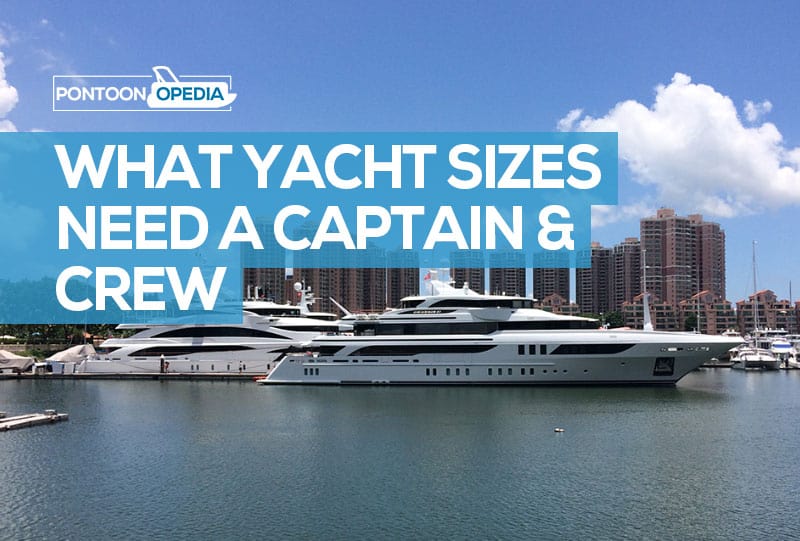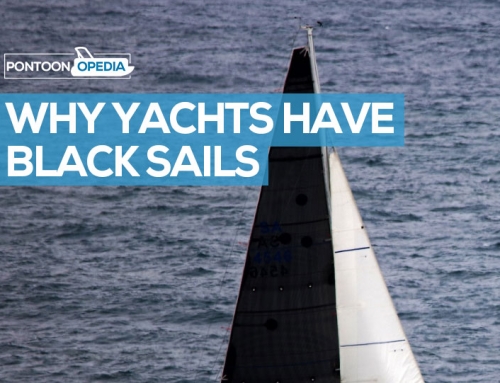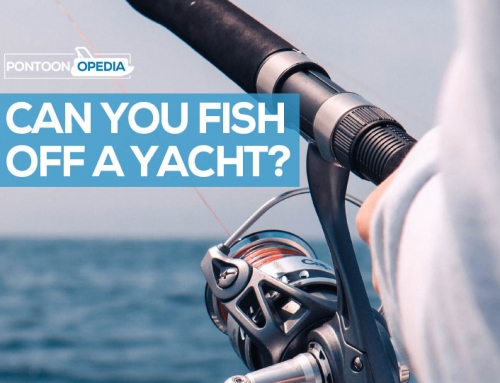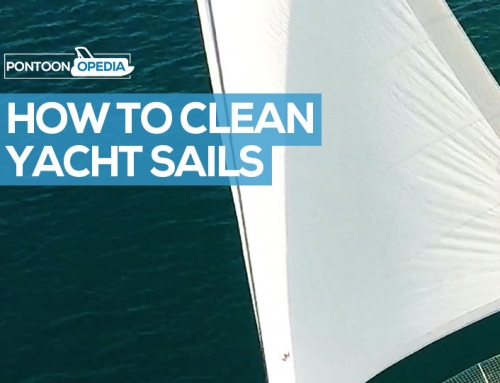Regardless of how experienced you are at boating or yachting, sometimes there are things that you cannot do on your own, and, when you are thinking about buying or chartering a yacht, whether or not you need a dedicated captain or crew needs to be taken into account.
As an avid boater who often takes yachting vacations, it’s something that has always piqued my interest; wondering what size yacht exactly requires a crew and captain. I decided to find out…
What size yacht requires a crew? Yachts are usually ok to operate a boat without a crew up to 75 feet long (22 meters), although an autopilot is highly recommended to assist you with breaking and staying on course. It can also depend on your yacht license.
Smaller yacht sizes won’t need crew, as many yacht owners will have the help of friends or family members when out on the water. In fact, I know of many husband and wife teams now taking on journeys that would in the past have been only attempted by a devoted and fully trained captain and crew.
Whether you can sail your yacht on your own, or if you will need at least one crew member on board entirely depends on your level or experience and on the size of your boat.
Table of Contents
What size yacht requires a captain?
The size of the yacht that you choose depends on what you want to use it for; whether it is for relaxing excursions out in sunny weather, or if you are looking for an adventurous journey out in the open ocean.

The larger sized yachts in this photo will definitely require a captain!
While in the past 70-foot yachts needed a professionally employed captain and crew to handle the running and steering of the vessel, improvements in technology, including warping winches, joystick controls and bow and stern thrusters have allowed for up to 100-foot long boats to be easily controlled by individuals with relatively little experience.
The size of the yacht that you can handle on your own or in a small family group without the assistance of a captain or crew depends more on your level of confidence in driving and controlling a boat.
Handy Hint: Do you know the differences between a yacht and a boat, and at what sizes one becomes the other? Read this guide to when a yacht qualifies as a boat.
Experienced yachters can happily and safely control 75 to 100-foot-long yachts, while novices and beginners may need help handling something more than half that size.
Safety is vital when controlling a boat of any size, not just for the people onboard but also for those around you in the water and in other boats, so if you are not very confident in your driving ability even with training then hiring someone to assist in the running and manning of the boat is recommended.
Note: Any Vessel carrying 6 or more paid passengers is also required to have a captain with a master’s license.
Do You Need a Captain’s License To Operate a Yacht?
So, what are the legal licensing requirements for operating a yacht? Well, that depends on boat size and whether you are operating for your own recreational use or taking paying passengers.
Generally, you don’t need a captain’s license to operate a recreational boat under 26 feet. A basic boating safety certification and a recreational boating license are all that’s typically required.
However, this may vary from state to state, so be sure to check local boating requirements.
When Is a Captain’s License Necessary?
For boats over 26 feet in length, the United States Coast Guard requires the person operating it to have a valid captain’s license. Getting the license requires passing an exam to demonstrate knowledge of navigation, safety rules, and other sea protocols.
There are two main captain’s licenses issued by the US Coast Guard; the Six Pack captain’s license and the 20/50 or 100 Ton Master captain’s license.
- Six-Pack Captains License: This type of captain’s license allows you to carry up to 6 paying passengers with crew. A six-pack license is good for uninspected vessels up to 100 tons. It’s typically used for recreational boats like charter fishing, cruising, and scuba diving.
- 25/50 or 100 Ton Master Captain’s License: This type of captain’s license is good for both inspected and uninspected vessels. A Master Captain’s license is necessary for any boat carrying more than 6 paying passengers. Examples of inspected vessels include ferries, water taxis, and harbor tour boats.
Yacht Use
License requirements also depend on whether you plan on operating for personal use or for business. Generally, you do not need a captain’s license to operate your yacht for your own use (unless it’s over 26 feet).
If you plan on boating for business, meaning charging passengers to ride or charter your yacht, then you are required to have a captain’s license. You may also be subject to certain rules and regulations such as ratio of passengers to crew members.
Check with a maritime law expert or local maritime authority to be sure you are in full compliance with any regulations.
Crew required for a yacht
A yacht crew does far more than just stand at the steering wheel as, depending on the size and the extravagance of your yacht, there are many different things that they may need to be in charge of.
When hiring for crew, it is vitally important that every member of the crew has experience and qualifications to fit their roles, including a STCW Basic Safety Training Certificate and an ENG1 Seafarer Medical Certificate (issued by a MCA-approved doctor).
Captain
If you have decided that your size yacht requires a captain, then be very picky. It’s essential to get a good captain, and there are some pirates out there! The captain will be the person in overall charge of the vessel and everyone onboard, including both the crew, the owners and any guests on board. They are not only in charge of driving and keeping the yacht on course but are also in charge of making sure that the rest of the crew are doing their own jobs efficiently and safely.
Communication is vitally important when onboard a boat, so that everyone knows what they are doing, where each other are and what needs to be done in order to keep the boat safe for everyone both onboard and in the water and the surrounding vessels. A captain is also in charge of administration, HR and the Accounts while onboard.
Steward
A steward or stewardess is in charge of hospitality and communication with the owner of the boat and any guests onboard, as well as keeping the interior areas of the yacht tidy.
Deckhand
Keeps interior and exterior areas clean and tidy for both organisation and safety, as well as being in charge of maintaining and operating any additional ‘water toys’ onboard (such as jet skis, ribs or other submersibles).
These can be dangerous in themselves, so making sure that they are well looked after both on and off land is important.
First Mate
Second in command to the Captain, taking command in their absence.
Second Mate
Shares the same duties are a deckhand but is also third in command to assist the First Mate in their duties.
Chef
If you require catering onboard, hiring a professional chef or sous chef to help order in and prepare food can be helpful if you are entertaining guests.
Engineer
For longer voyages, an engineer will be in charge of the engine, the mechanics and electrical systems onboard the boat, including repairing any damages and keeping everything running smoothly.
Additional jobs can also be hired, including additional officers, deckhands and stewards, as well as diving instructors, pilots or even nannies or bodyguards depending on what you want to use your yacht for and how long you are going to be at sea.
These positions are not necessary in order to take a boat out onto the water, having a devoted Captain and Engineer onboard a boat larger than 100-foot is highly recommended in order to safely run the ship.
Typically, the larger the vessel the more crew members are needed to help run it.
How much does it cost to hire a yacht crew?
If your yacht is the sizes that requires a crew, you’re going to need to go on a recruitment drive. the cost of crewing a yacht depends on how many crew members you want to hire, as well as how often you are going to use it.
Most yacht crew charge their services per year and per how many footage of boat.
- Captain – Estimated at around $1,000 per foot of boat, meaning that if you have a 100-foot boat you will be charged around $110,000 per year, or $220,000 for a 200-foot boat.
- Engineers – Between $90,000 to $130000 a year
- Deckhands – Between $30,000 to $50,000 a year
- Chef – Depending on the quality of the chef, they can easily charge up to $70,000 per year
Other positions, including instructors, stewards, entertainment and additional help (including nannies and bodyguards) have their own individual charges.
How do you become a yacht captain?
If you are going to be paying over $100,000 per year on a captain for your yacht, how do you know whether your pride and joy is in safe hands? Yacht captains have to go through rather extensive training in order to gain their license, including maritime experience, safety training, health and safety, administrative experience as well as passing drug tests, character references and an extensive background check.
The experience of a captain is vitally important as, depending on the size of the boat, they will not only be in charge of the controls of the boat but also everyone onboard, including the crew and the guests.
For larger yachts, they can take a more hands-off, administrative approach, but smaller boats will require them to be more hands-on, having fewer crew members to cover all of the jobs needed onboard.
Getting an experienced and qualified captain is a must for any yacht over 100 feet long, as well as if you are not very confident in your ability to control a boat on your own.
The last word…
Now you know what size yacht requires a crew and captain (and in truth, a lot depends on your own experience), it’s time to go get your staff, or even start talking to a yacht broker. It’s important to know what you will have to pay.






